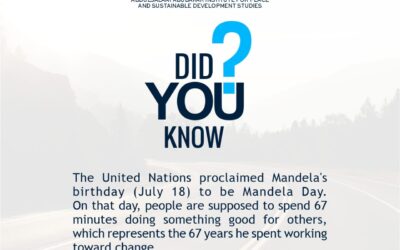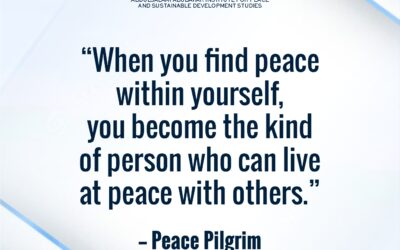
In a world often divided by conflict and hostility, the pursuit of peace remains a universal aspiration. Nelson Mandela, the revered South African leader and symbol of reconciliation, once said,
“If you want to make peace with your enemy, you have to work with your enemy. Then he becomes your partner.”
These profound words encapsulate the essence of a transformative approach to resolving conflicts. This article delves into the profound wisdom of Mandela’s quote and explores the significance of collaboration and empathy in forging lasting peace.
- Embracing the Paradox: At first glance, Mandela’s statement may appear contradictory or counterintuitive. How can one possibly consider working alongside their enemy, the very source of their troubles? Yet, buried within this paradox lies a powerful truth. Peace cannot be achieved by perpetuating the cycle of animosity. Instead, it necessitates a willingness to engage in dialogue, to understand the root causes of conflict, and to actively seek common ground.
- The Power of Dialogue: Constructive dialogue serves as the foundation for any genuine peace-building endeavor. When we engage in open and honest conversation with our adversaries, we begin to humanize one another, shedding the dehumanizing stereotypes that fuel hostility. Dialogue fosters empathy, allowing us to recognize shared aspirations, grievances, and vulnerabilities. By embracing the power of dialogue, enemies have the opportunity to become partners, united in their pursuit of a peaceful resolution.
- Overcoming Barriers: Working with our enemies is no easy task. It demands immense courage and the willingness to step outside our comfort zones. Often, deep-seated grievances, historical conflicts, and ingrained prejudices act as barriers to collaboration. However, when we overcome these obstacles, remarkable transformations can occur. By building bridges of understanding and trust, we create an environment where former foes can envision a shared future, free from the shackles of enmity.
- The Role of Forgiveness: Forgiveness, an integral component of Mandela’s philosophy, plays a vital role in transforming enemies into partners. It requires transcending the desire for revenge and choosing to let go of past grievances. Forgiveness does not imply condoning or forgetting the harm inflicted; rather, it signifies a commitment to break the cycle of hatred and pave the way for reconciliation. By extending forgiveness to our enemies, we create the potential for healing and building a harmonious society.
- From Partnership to Lasting Peace: When adversaries become partners, a foundation is laid for sustainable peace. Collaborative efforts in addressing common challenges, such as poverty, inequality, or social injustice, create shared goals that supersede animosity. Through joint initiatives, enemies-turned-partners can channel their energies into constructive endeavors that benefit both sides, fostering a sense of interdependence and paving the way for lasting peace.
Nelson Mandela’s profound quote encapsulates a timeless truth: to make peace with our enemies, we must transcend the boundaries of hostility and engage in collaborative efforts. By embracing dialogue, overcoming barriers, practicing forgiveness, and working together, adversaries have the potential to become partners united in their pursuit of a more peaceful world. Let us heed Mandela’s wisdom and strive to transform our enemies into allies, for it is through this transformative journey that lasting peace can be achieved.
#aaipsds



